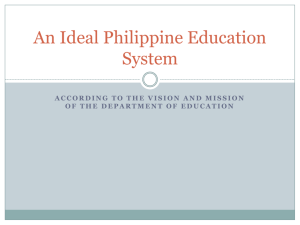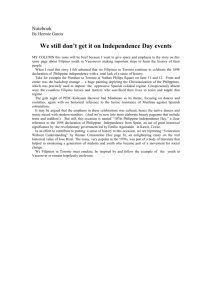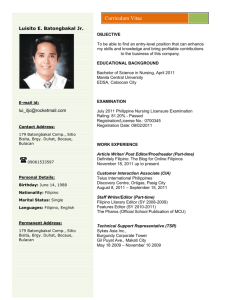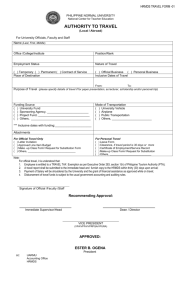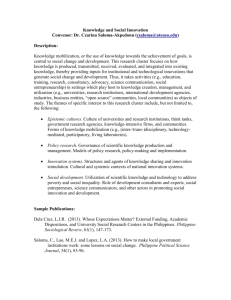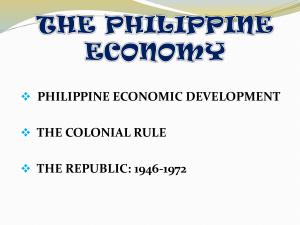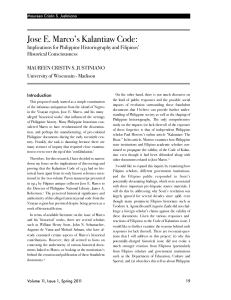Center for Philippine Studies CONVERGING TEXTS Dr. Pia A. Arboleda
advertisement
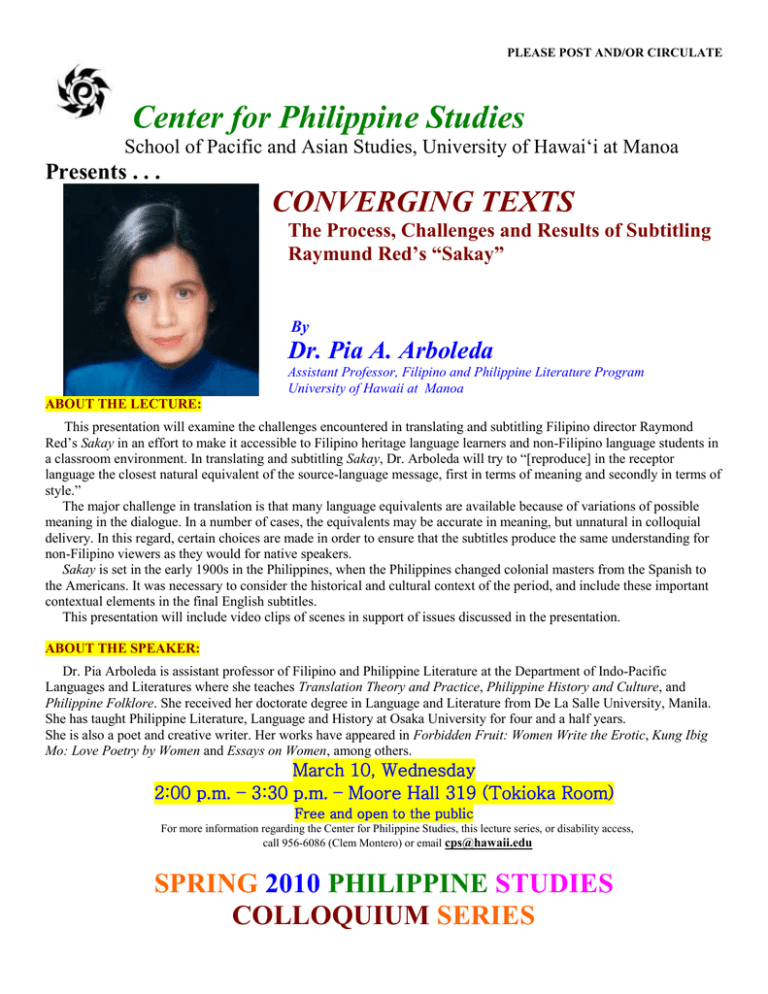
PLEASE POST AND/OR CIRCULATE Center for Philippine Studies School of Pacific and Asian Studies, University of Hawai‘i at Manoa Presents . . . CONVERGING TEXTS The Process, Challenges and Results of Subtitling Raymund Red’s “Sakay” By Dr. Pia A. Arboleda Assistant Professor, Filipino and Philippine Literature Program University of Hawaii at Manoa ABOUT THE LECTURE: This presentation will examine the challenges encountered in translating and subtitling Filipino director Raymond Red’s Sakay in an effort to make it accessible to Filipino heritage language learners and non-Filipino language students in a classroom environment. In translating and subtitling Sakay, Dr. Arboleda will try to “[reproduce] in the receptor language the closest natural equivalent of the source-language message, first in terms of meaning and secondly in terms of style.” The major challenge in translation is that many language equivalents are available because of variations of possible meaning in the dialogue. In a number of cases, the equivalents may be accurate in meaning, but unnatural in colloquial delivery. In this regard, certain choices are made in order to ensure that the subtitles produce the same understanding for non-Filipino viewers as they would for native speakers. Sakay is set in the early 1900s in the Philippines, when the Philippines changed colonial masters from the Spanish to the Americans. It was necessary to consider the historical and cultural context of the period, and include these important contextual elements in the final English subtitles. This presentation will include video clips of scenes in support of issues discussed in the presentation. ABOUT THE SPEAKER: Dr. Pia Arboleda is assistant professor of Filipino and Philippine Literature at the Department of Indo-Pacific Languages and Literatures where she teaches Translation Theory and Practice, Philippine History and Culture, and Philippine Folklore. She received her doctorate degree in Language and Literature from De La Salle University, Manila. She has taught Philippine Literature, Language and History at Osaka University for four and a half years. She is also a poet and creative writer. Her works have appeared in Forbidden Fruit: Women Write the Erotic, Kung Ibig Mo: Love Poetry by Women and Essays on Women, among others. March 10, Wednesday 2:00 p.m. – 3:30 p.m. – Moore Hall 319 (Tokioka Room) Free and open to the public For more information regarding the Center for Philippine Studies, this lecture series, or disability access, call 956-6086 (Clem Montero) or email cps@hawaii.edu SPRING 2010 PHILIPPINE STUDIES COLLOQUIUM SERIES

